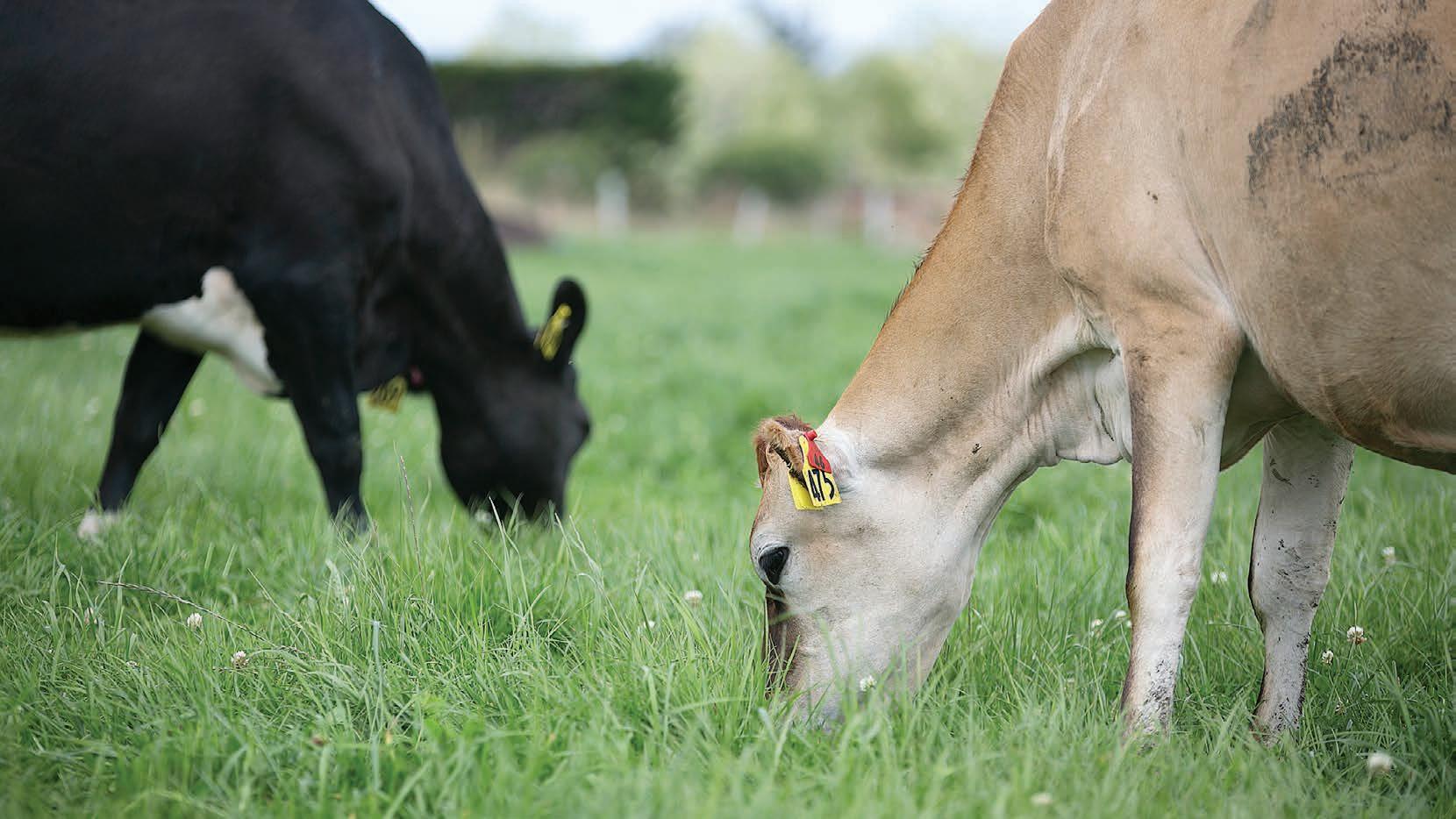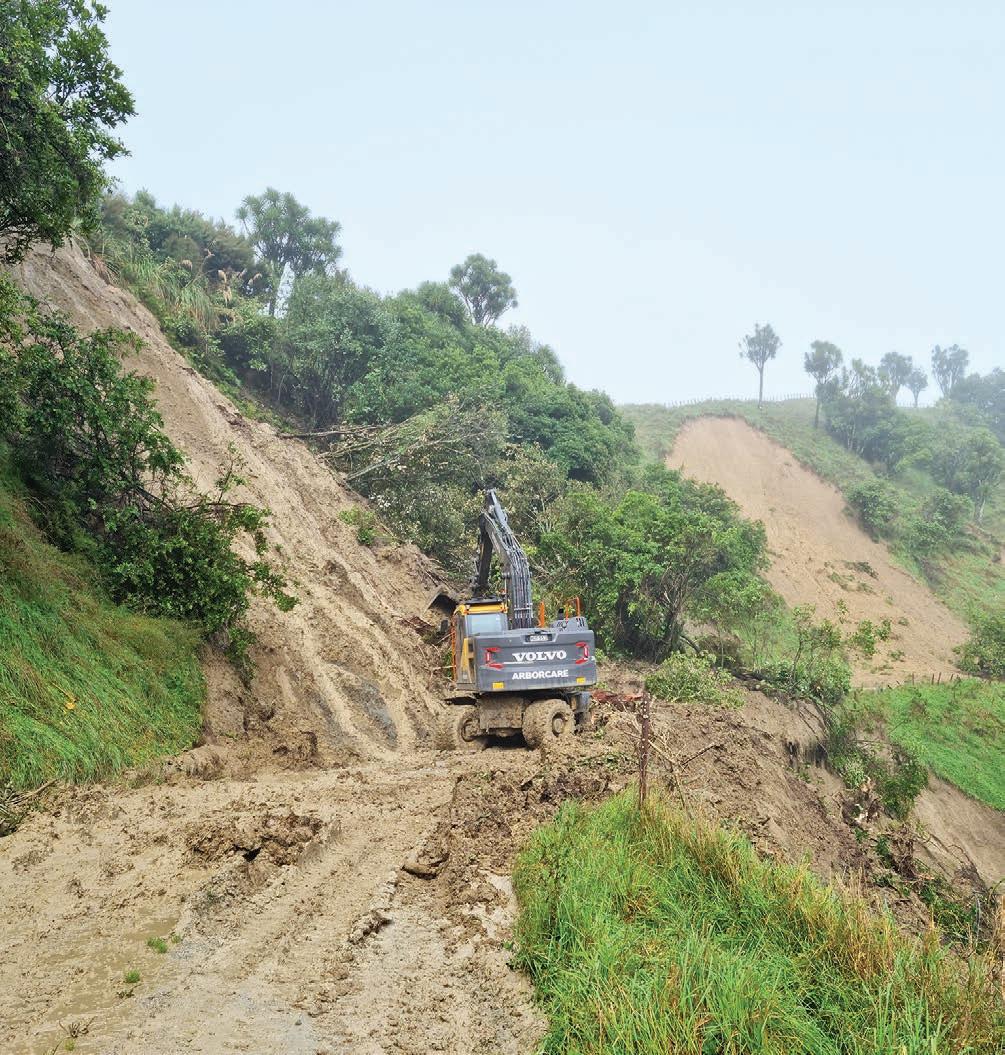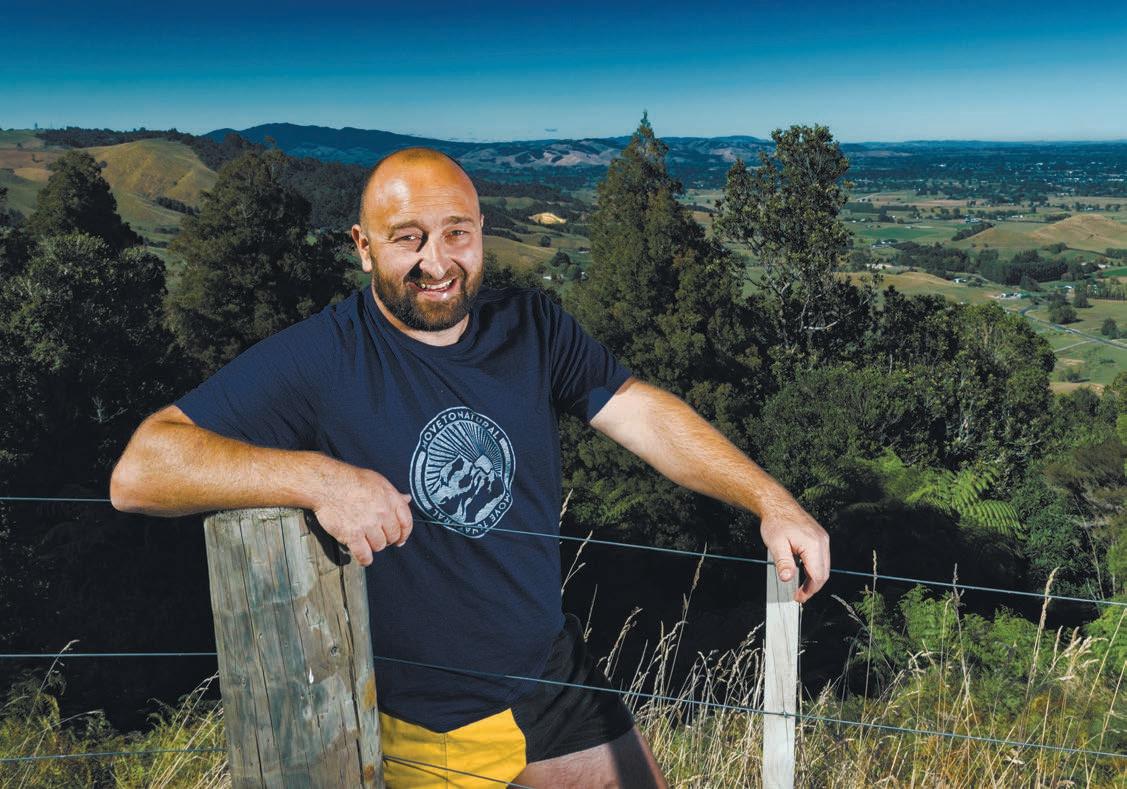
10 minute read
Opinion
26 FARMERS WEEKLY – farmersweekly.co.nz – April 4, 2022
Opinion
Why are we playing silly games?
Alternative View
Alan Emerson
WHEN it comes to marketing New Zealand, its products and tourism we seem a little confused.
For example, carbon neutral is a phrase that has me perplexed, especially when I see carbon neutral helicopter flights available.
All that means is that the polluter either pays for carbon or plants trees so they can continue to pollute. That doesn’t make a lot of sense to me. I’d rather stop the pollution at source.
It also means the classification would inevitably increase your costs. Is there research showing consumers are prepared to pay a premium for carbon neutral products?
According to Beef + Lamb research, NZ farming is carbon neutral now so why are we playing silly games?
Then we have regenerative agriculture, or RA, according to its disciples. If people want to play with RA that’s fine, but don’t expect me to take you seriously.
We’ve already wasted buckets of taxpayer and levy payer money on it, with absolutely no discernable advantage. That’s despite Australian research suggesting that if you want to go bankrupt, try RA.
The B+LNZ argument that because it’s so established on social media we need to go with it is spurious and reeks of laziness on the part of B+LNZ.
There are three other reasons to reject RA. As MPI have said, RA is not a verb but a series of nouns meaning it can be what you want it to be. In a word, meaningless. It is about pasture, which is one dimensional, and I’m yet to see any reputable scientific commentary supporting it.
I’d also argue we’re regenerative now. RA, as we know, started as the result of years of excessive grazing with no fertiliser.
I’m sure we’ll be bombarded with other fads in the coming years.
Our current 100% Pure slogan is wrong and open to ridicule. Nothing is 100% pure.
Looking on the positive side, we have our own story to tell if we had the energy and unity to do it.
Instead of carbon neutral, we can legitimately say we’re the most carbon efficient producers in the world.
The EU suggestion that we must be as good as they are if we want to trade with them is irrelevant. We are.
If the HWEN on-farm recommendations are accepted we will then be able to claim carbon neutrality without any sleight of hand accounting.
Our animal welfare is exceptional by world standards, with our animals being grass-fed. Getting back to the EU, seeing cows factory-farmed in cubicles with their tails tied up is offensive to Kiwis. We’re doing well, backed by strong animal welfare legislation.
It is the same with our employment laws. We don’t exploit and we’re certainly not involved with child labour or slavery at any level.
It is also possible to come into farming with little and eventually purchase your own farm. There aren’t a lot of countries where that is possible.
Environmentally we have a proud record as well, but I believe there is more to do. The catchment groups I’m aware of are doing great work cleaning up waterways.
We also need to be realistic, especially as regards nitrogen fertiliser. If we banned it as the little darlings at Greenpeace, along with some of the deskbound city-centric eco-warriors at MfE and EPA would like, it will cost and significantly so. Figures published by Professor Jacqueline Rowarth show that the removal of synthetic nitrogen from the rural toolkit would cost the country $19.8 billion. In addition, removing synthetic nitrogen would encourage less environmentally-friendly practices like spreading chicken litter on pasture.
We also have two international firsts for our fertiliser industry with Fertmark and Spreadmark, which I’d like to see become compulsory.
For the uninitiated, when farmers use Fertmark and Spreadmark they know exactly what they’re putting on their pasture and precisely where it is applied.
Our ACVM legislation is also robust. We don’t use hormones or harmful growth promoters.
My point is that we don’t have to change a lot. We must refine what we’re doing. We’re already moving down that road with Te Taiao, Our Land and Water, but I would like to see a simple, refined NZ brand incorporating our strengths.
My preference would be for a uniquely NZ quality standard. Kounga, meaning quality, would be an option, but there are others. I don’t trust bureaucrats and officials to put together a workable standard capable of being accepted internationally, so I’d have a science-based team chaired by a farmer, a leader and trade expert like Malcolm Bailey.
I would have no doubt we could produce an internationally acceptable and environmentally robust standard in short order that is both practical, achievable and accepted locally and internationally.
It is just a matter of deciding that’s what we want to do and then doing it.
It isn’t brain surgery, but good common sense.
PLAY TO STRENGTHS: Alan Emerson believes NZ needs to refine what it’s already doing well.
Your View
Alan Emerson is a semi-retired Wairarapa farmer and businessman: dath.emerson@gmail.com
LETTERS
A fairer system has to be found
I SIGHED a small sigh of hope that the Government now appears to understand the effect that the blanket planting of pine trees for the ETS is having on jobs, communities, food production and, not least, New Zealand’s bottom line in foreign earnings, while not even making a dent in the reduction of carbon emissions.
But it now appears that sheep and beef farming communities may lose out in yet another way under the possible pricing of methane emissions under He Waka Eke Noa (HWEN).
Option 1 seems to be what most people want, but it clearly needs a lot of work to make it fair and palatable to hill country farmers.
I would be happy to pay a fair share of the cost of emissions, as I do not want continuing climate change.
I have been an early adopter of practices to reduce emissions and am aware that under the proposal my contribution is not being recognised.
So when I see that the likely cost under the HWEN’s proposed models will mean, in the long run, that I will be paying more than a fair and equitable share compared to other agriculture sectors, I feel very cross.
That cost will probably mean that sheep and beef farming on hill country will likely go the way of the dinosaurs, while forests, native and/or exotic pine will take over good productive land anyway.
We will end in the same disastrous scenario as afforestation under the ETS brings us. And that’s a place NZ as a whole does not want to be.
When, oh HWEN, will policy writers, commissioners and industry partnerships in offices listen to those farmers on the ground?
A fairer system has to be found that leaves all sectors viable for the long-term interests of all of us in agriculture and in NZ.
More letters P24
Letters to the Editor
Letters must be no more than 450 words and submitted on the condition The New Zealand Farmers Weekly has the right to, and license third parties to, reproduce in electronic form and communicate these letters. Letters may also be edited for space and legal reasons. Names, addresses and phone numbers must be included. Letters with pen names will generally not be considered for publication.
At the mercy of extreme weather
From the Ridge
Steve Wyn-Harris
THE reports coming out of the Wairoa district and coastal Gisborne are genuinely concerning after this latest weather event. For many, it is sounding like absolute devastation and some of the few pictures I’ve seen show terrible destruction. I’m very worried for the many who have been affected by this.
Our benchmark has always been Cyclone Bola, which was an extratropical cyclone that smashed into the East Coast of the North Island 34 years ago in March 1988. A Tolaga Bay station recorded over 900mm of rain and many others all the way down to Napier recorded many hundreds of millimetres.
That storm was very destructive to the hill country in that region, but also the waterways and flats took a real hiding. It’s taken decades for the country to recover and saw much of the land retired from farming and go into forestry.
We have always feared another cyclone on that scale but probably thought we would never see an event of that magnitude again.
The low or depression that formed off the Gisborne coast 10 days ago deepened and pushed significant amounts of tropical rain into Gisborne and Wairoa. Here I recorded just 130mm of rain on that Thursday but farms in foothills in Central Hawke’s Bay reported 300mm and that was reflected in our rivers where a lot of damage occurred. Our coast also got falls up to 200mm.
We were fortunate as the rain may have continued over the next week, but as showers only.
Unfortunately, that wasn’t the case further north.
The low, which doesn’t even have a name, became trapped and continued to drive torrential rain into northern Hawke’s Bay and Gisborne. Every day it was unrelentless.
There are reports of falls over the week in the high hundreds of mm and even one from Mangapoike of 1200mm.
The land stood up to the original hit, but that continuing rain day after day turned the soils into liquid and it has let go.
I’ve talked to a few mates in the Wairoa district and they have lost complete access around their farms.
Culverts, tracks and bridges have failed, making getting around their properties either on horseback or foot as the only options.
This at a time when rams are about to or have gone out with the ewes, making tupping a fraught exercise.
With fencing infrastructure in ruins, stock management is going to be exceedingly difficult in the months ahead.
Farm access and public roading will make getting stock out of these affected areas difficult and overlaying that are the processing delays due to covid. I hesitate to use the term ‘perfect storm.’
Telephone, electricity, and internet services for the more isolated are badly disrupted.
A lot of us headed up into these areas after Bola and that is something some of us will be able to do again to give some help, but moral support at this time is as important as anything.
Small things help, like ringing a few to let them know you are aware of their plight and posting a few red cross parcels, which I’ve done in the past, and you always hear how appreciated their arrival was.
Here in Hawke’s Bay we are awash with grass, so will be able to support the store market going into winter should animals need to be sold and assist with grazing, which in some cases could be free to help fellow farmers out.
Already there are reports of kindness and support with associated industries pitching in and rural women who are in the affected regions baking for the roading crews who are making valiant efforts to get roads open.
And then down in Southland they are struggling with a drought for goodness’ sake.
Just last week they went into a total fire ban at the end of March.
They too are being affected by the delays in getting stock processed due to the staffing difficulties and covid sweeping through the meat plants.
These are exceedingly stressful times for both groups of farmers, so make sure you remain connected with others and if the need is there, reach out to groups like the rural support trust and others who are there for these very situations.
CHALLENGE: Culverts, tracks and bridges have failed following heavy rainfall in the Wairoa district and coastal Gisborne, making getting around their properties either on horseback or foot as the only options.
Photo: Tairāwhiti
Civil Defence

MORE:
Suffering from depression or stress, or know someone who is? Where to get help: RURAL SUPPORT TRUST: 0800 RURAL HELP DEPRESSION HELPLINE: 0800 111 757 LIFELINE: 0800 543 354 NEED TO TALK? Call or text 1737 SAMARITANS: 0800 726 666 YOUTHLINE: 0800 376 633 or text 234
Your View
Steve Wyn-Harris is a Central Hawke’s Bay sheep and beef farmer. swyn@xtra.co.nz

Bringing Native Bush Back to New Zealand Farmland
Adam Thompson wants to make it easy for farmers to grow native trees on land not suited for livestock, which led him to start Restore Native Plant Nursery. Watch the video now at youtube.com/OnFarmStory This episode was made possible with support from






